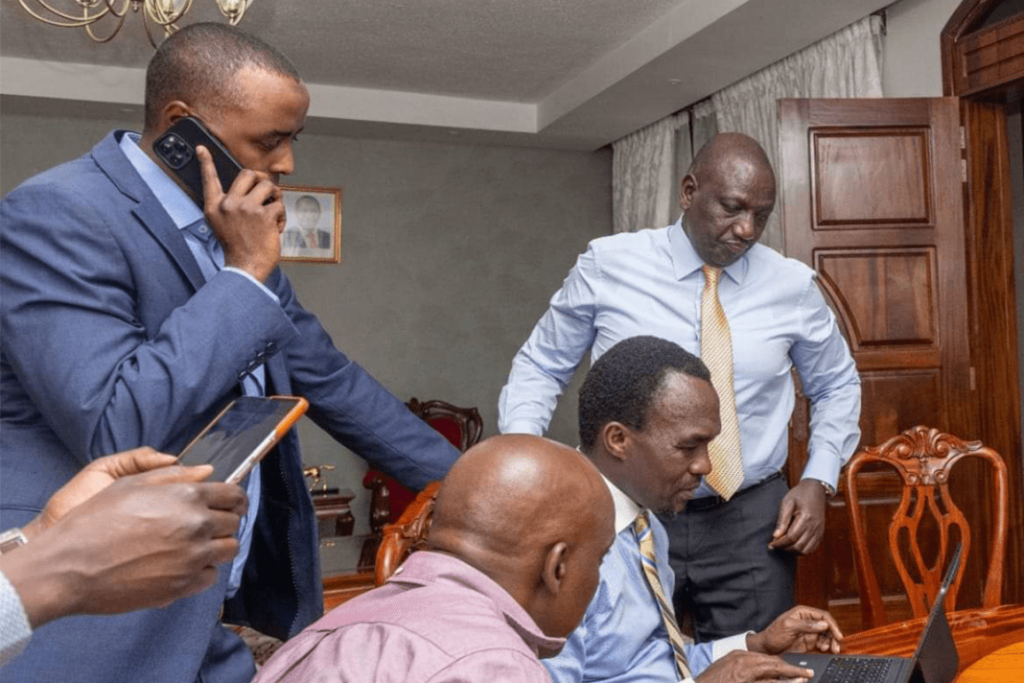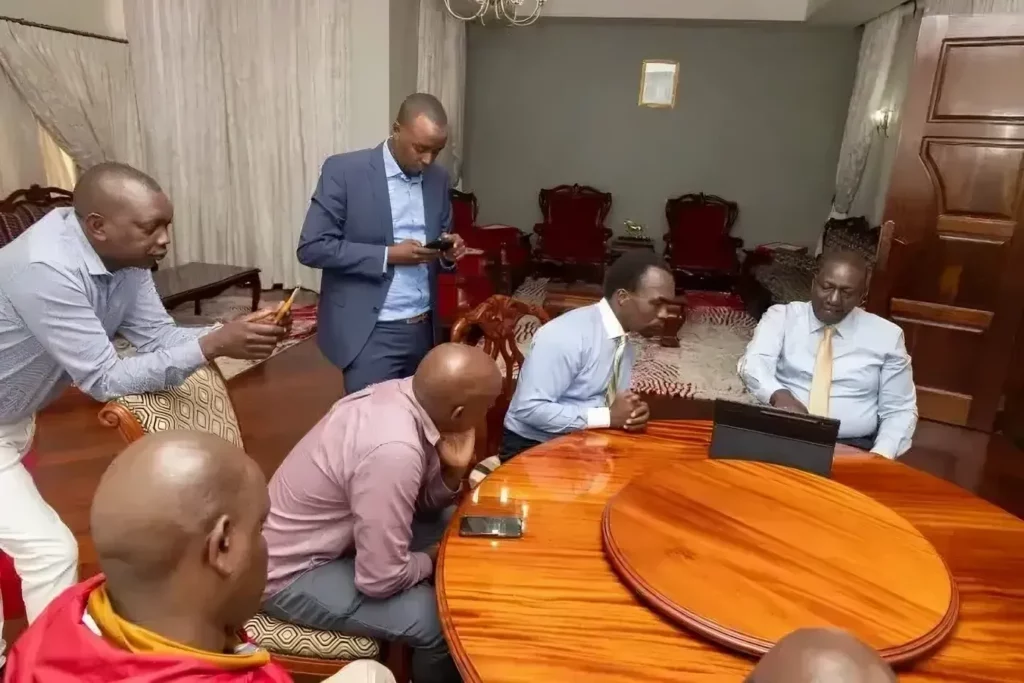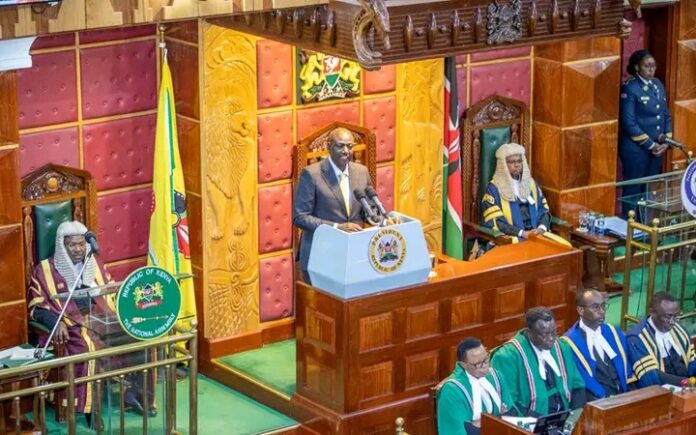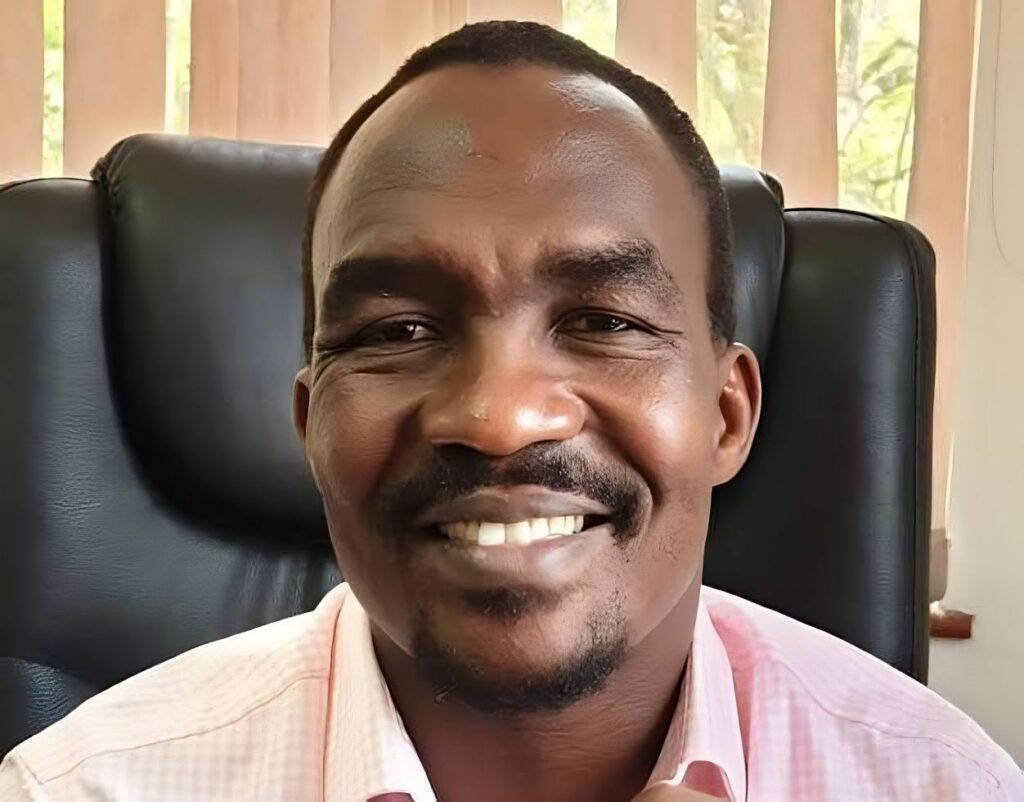President Ruto impressed many Kenyans with his oratory skills when he delivered his inaugural speech at the 77th United Nations General Assembly in New York, United States.
He impressed netizens with how well articulated he spoke on all issues surrounding 17 sustainable development goals and Kenya’s commitment to other nations to ensure they are achieved.
Many however suggested that President Ruto was delivering his speech from his mind, however, it is understood that he was reading it from a teleprompter.
Not many know the man behind the president’s powerful and impactful speeches with most assuming he drafts them himself. His speeches are composed by little-known Lawyer, Eric Ng’eno who is part of the President’s Presidential Strategic Communication Unit (PCSU).
He also worked as the speechwriter for former President Uhuru Kenyatta.
The presidential speech writer is an alumnus of Alliance High School which he attended between 1991 and 1994. He then proceeded to Moi University where he graduated with a Bachelor of Laws degree. He also boasts a Masters’s in Public Policy and Management from Strathmore Business School, which he joined in 2015.
Erick Ng’eno is a Partner at Kipsang & Mutai Advocates in charge of Litigation, Research and Legal Advisory. The pair have both been working together for over 15 years. He revealed that he first started working with President Ruto after the 2007/2008 post-election violence.
Ruto had asked for someone with a legal background and with excellent communication and writing skills. He did some research for him during the Serena negotiations that brought forth the National Accord after the Post-election violence.

“Initially, I didn’t understand why communication skills were that important for him. But he was clearly farsighted. When the Grand Coalition Government was formed, he was appointed Minister for Agriculture.” He recalled.
“As a minister, Honourable Ruto wanted technical materials to be packaged in a language that could be used to successfully engage a national audience. He is rather good at it, and we spent lots of time going through a lot of documents and prepping him for presentations at various levels,” Ng’eno revealed.
Ng’eno recalls one time when President Ruto had requested him to write a speech he was to give at Moi University. Instead of doing it, he passed it on to his junior staff and later handed him that speech himself.
Dr. Ruto was displeased with the nature of the work and trashed it. He asked Ng’eno to write the speech himself in the short period that was remaining.
“Since we were on our way to Wilson Airport, and I had less than an hour to put something together, I found a computer and produced a brief speech. When he returned, he told me that he liked it. So, I became his messaging resource person for Press statements, speeches, briefs, presentations and other communication,” he recalled.
Ng’eno worked for former President Uhuru Kenyatta from May 2013 to June 2020, until when he and four other members of the PCSU were unceremoniously shown the door over allegedly ‘inconsistent messaging’.
The other members were Digital Strategist Dennis Itumbi, External Press Director Munyori Buku and Events Director James Kinyua.
When Ruto was sworn in as President, he took them into his PCSU team serving under Communication Secretary David Mugonyi and Director of Communication, Emmanuel Tallam.
Ng’eno describes Ruto as a man driven by high standards, who will always work to ensure he delivers. He says that the President appreciates technical materials packaged in a manner that can be used to attract a national audience.
The lawyer says that writing speeches for the president come in different formats. Some are one-on-one consultations while others are instructions given to him; like an assignment. Others are compiled over a long period of time by large teams of high-level technical language.

He says that being a presidential speech writer is more of a team sport, as they work closely with the government’s spokesperson to ensure that key government agendas are embedded in every speech, subject to relevance.
He notes that the length of speeches to be delivered depends on the occasion as well as the subject or number of subjects involved.
“The State of the Nation address, for instance, can never be a 10-minute affair because there are critical constitutional and political expectations to be canvassed. Contrast this with, say, the laying of a foundation stone for a sub-county library.”









